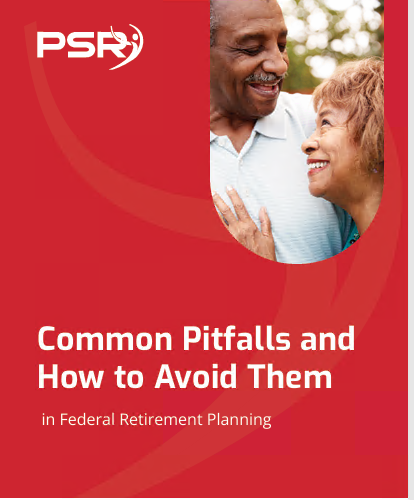Key Takeaways
-
Delaying Medicare enrollment past your Initial Enrollment Period (IEP) can result in lifelong penalties and delayed coverage, especially if you don’t have qualifying health insurance.
-
Understanding the enrollment timelines and exceptions can help you avoid unnecessary out-of-pocket costs as a public sector employee or retiree.
Why Medicare Might Seem Optional But Isn’t Always
- Also Read: Divorce and Your Federal Pension—What Happens When You Split Assets and How It Could Affect Your TSP
- Also Read: What Happens to Your Federal Benefits After Divorce? Here’s the Lowdown
- Also Read: The Best FEHB Plans for 2025: Which One Fits Your Lifestyle and Budget the Best?
This is especially important for public sector retirees who often have access to other types of health coverage, such as the Federal Employees Health Benefits (FEHB) Program or the Postal Service Health Benefits (PSHB) Program. Just because you have this coverage doesn’t automatically exempt you from Medicare enrollment timelines.
Understanding the Enrollment Periods
Medicare has specific windows when you’re supposed to enroll. Miss them, and you risk penalties that could follow you for the rest of your life.
Initial Enrollment Period (IEP)
Your IEP lasts for seven months:
-
Three months before your 65th birthday
-
The month of your 65th birthday
-
Three months after your birthday month
If you miss this window and don’t have other qualifying health coverage, you may owe a late enrollment penalty.
General Enrollment Period (GEP)
If you didn’t sign up during your IEP and don’t qualify for a Special Enrollment Period, you can enroll during the GEP, which runs from January 1 to March 31 each year. However, your coverage won’t start until July 1, and you may face penalties.
Special Enrollment Period (SEP)
You might qualify for a SEP if you have coverage through an employer, including public sector employment. The SEP allows you to sign up for Medicare:
-
Anytime you’re still covered by your employer health plan
-
Up to eight months after that coverage ends
For retirees, understanding whether your retiree health coverage counts as “creditable” is essential. If it’s not, the clock starts ticking the moment you retire.
The Cost of Waiting
While Medicare Part A (hospital insurance) is usually premium-free if you paid Medicare taxes long enough, Part B (medical insurance) comes with a monthly premium. Delay enrolling in Part B without valid coverage, and you could pay:
-
A 10% increase in your monthly premium for each 12-month period you were eligible but didn’t sign up
-
This penalty is lifetime
In 2025, the standard monthly premium for Part B is $185. A one-year delay without creditable coverage would raise your monthly premium by $18.50, and that would stay with you permanently.
Retiree Coverage: Is It Enough?
Many public sector retirees rely on plans like FEHB or PSHB. However, not all retiree plans qualify as creditable coverage when it comes to delaying Medicare enrollment without penalty.
What Counts as Creditable Coverage?
To avoid the penalty, your retiree plan must be:
-
Employer-sponsored and current (not retiree-only)
-
As good as or better than Medicare
Retiree coverage that kicks in after you stop working often does not count, unless it meets very specific criteria.
If your retiree coverage is through a spouse’s current employment, that may qualify you for a SEP.
Part D: Another Layer of Penalties
Medicare Part D, which covers prescription drugs, also penalizes late enrollment. If you go 63 days or more without creditable drug coverage after your IEP, you may owe:
-
A 1% increase in your monthly premium for each month you went without coverage
-
This penalty also lasts for life
In 2025, the average Part D premium is about $46.50. A 12-month delay could mean an extra $5.58 every month for as long as you have Part D.
Coordination With FEHB and PSHB
If you’re still working and covered under FEHB or PSHB, you can delay Part B without penalty. But the moment you retire, that changes unless you qualify for a SEP.
For postal retirees, enrolling in Medicare Part B is required to maintain full PSHB benefits, unless you fall into one of a few exception categories, such as retiring on or before January 1, 2025.
Coordination Matters
-
Enrolling in both Medicare and your FEHB or PSHB plan can reduce out-of-pocket costs.
-
Many FEHB and PSHB plans waive deductibles and reduce copays if you have Medicare Part B.
-
Not having Medicare could result in higher cost-sharing.
Timing Is Everything
Avoiding Medicare late enrollment penalties comes down to timing. Here are some benchmarks to keep in mind:
-
Turning 65 in 2025? Your IEP starts three months before your birthday.
-
Still working past 65? Keep your FEHB or PSHB active and confirm it qualifies as creditable.
-
Retiring in 2025? You have an eight-month SEP, but don’t wait too long if your coverage is ending.
-
Already retired? Check if your current coverage counts; if not, enroll in Medicare immediately to stop the penalty from growing.
Don’t Rely on Assumptions
A common mistake is assuming that your public sector health plan covers everything you need, indefinitely. Medicare plays a critical role, especially when it comes to:
-
Hospitalizations
-
Outpatient procedures
-
Lab tests and preventive care
-
Durable medical equipment
Without Medicare Part B, you may pay more out-of-pocket, even with FEHB or PSHB. And once you miss your window, catching up gets expensive.
What If You Missed the Window?
If you delayed Medicare and now realize you should have signed up, act quickly:
-
Enroll during the General Enrollment Period
-
Coverage starts in July of that year
-
Penalties begin to accrue after your IEP if you had no creditable coverage
Keep in mind, the penalty clock does not stop until you enroll.
Mistakes to Avoid
-
Assuming retiree coverage is enough: Check if it’s creditable.
-
Missing your IEP: Set reminders and understand your eligibility window.
-
Delaying Part D coverage: Even if you don’t take medications now, late penalties still apply.
-
Failing to verify your plan’s status: FEHB and PSHB can be confusing; ask your benefits administrator.
How to Prepare in Advance
Start planning at least six months before turning 65. Confirm:
-
Whether your current coverage counts as creditable
-
When your IEP begins
-
Whether your retirement date impacts your eligibility for a SEP
Speak with HR if you’re still employed or a benefits specialist if retired. The coordination of benefits can be complex, especially in the public sector.
Medicare Might Look Optional, But the Cost of Delay Isn’t
You might think you have time to decide about Medicare, especially with FEHB or PSHB in place. But waiting too long, even unintentionally, can cost you. Lifetime penalties, delayed coverage, and higher out-of-pocket expenses are all very real consequences.
Take proactive steps now to avoid surprises later. If you have questions about how Medicare interacts with your current or future retirement benefits, get in touch with a licensed agent listed on this website to receive personalized help.











